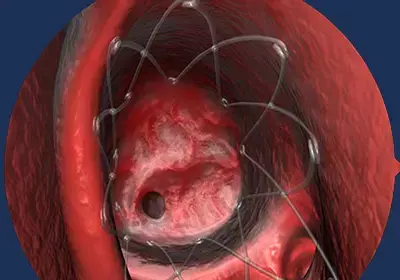- Home
- Medical news & Guidelines
- Anesthesiology
- Cardiology and CTVS
- Critical Care
- Dentistry
- Dermatology
- Diabetes and Endocrinology
- ENT
- Gastroenterology
- Medicine
- Nephrology
- Neurology
- Obstretics-Gynaecology
- Oncology
- Ophthalmology
- Orthopaedics
- Pediatrics-Neonatology
- Psychiatry
- Pulmonology
- Radiology
- Surgery
- Urology
- Laboratory Medicine
- Diet
- Nursing
- Paramedical
- Physiotherapy
- Health news
- Fact Check
- Bone Health Fact Check
- Brain Health Fact Check
- Cancer Related Fact Check
- Child Care Fact Check
- Dental and oral health fact check
- Diabetes and metabolic health fact check
- Diet and Nutrition Fact Check
- Eye and ENT Care Fact Check
- Fitness fact check
- Gut health fact check
- Heart health fact check
- Kidney health fact check
- Medical education fact check
- Men's health fact check
- Respiratory fact check
- Skin and hair care fact check
- Vaccine and Immunization fact check
- Women's health fact check
- AYUSH
- State News
- Andaman and Nicobar Islands
- Andhra Pradesh
- Arunachal Pradesh
- Assam
- Bihar
- Chandigarh
- Chattisgarh
- Dadra and Nagar Haveli
- Daman and Diu
- Delhi
- Goa
- Gujarat
- Haryana
- Himachal Pradesh
- Jammu & Kashmir
- Jharkhand
- Karnataka
- Kerala
- Ladakh
- Lakshadweep
- Madhya Pradesh
- Maharashtra
- Manipur
- Meghalaya
- Mizoram
- Nagaland
- Odisha
- Puducherry
- Punjab
- Rajasthan
- Sikkim
- Tamil Nadu
- Telangana
- Tripura
- Uttar Pradesh
- Uttrakhand
- West Bengal
- Medical Education
- Industry
Drug-eluting stent reduces stroke recurrence in intracranial atherosclerotic stenosis: JAMA

China: In a recent trial, drug-eluting stents (DES) were observed to minimize the risks of in-stent restenosis (ISR) and ischemic stroke recurrence in patients with symptomatic high-grade intracranial atherosclerotic stenosis (ICAS) compared to bare-metal stents (BMS). This study was conducted by Baixue Jia and the team, findings of which were published in the journal JAMA Neurology on 4th January 2022.
In patients treated with a conventional BMS, ISR is the most common cause of stroke recurrence following intracranial stenting. It is unknown if a DES may lower the danger of ISR in ICAS. Keeping the above point in mind, researchers conducted this study with the objective to see if a DES can lower the risk of ISR and stroke recurrence in individuals with symptomatic high-grade ICAS.
From April 27, 2015, to November 16, 2018, a prospective, multicenter, open-label randomized clinical study with blinded outcome assessment was done at 16 medical sites in China with a large volume of cerebral stenting. Patients with symptomatic high-grade ICAS were enrolled, randomized, and tracked for one year. From April 1 to May 22, 2021, intention-to-treat data were analyzed. In a 1:1 ratio, patients were randomly randomized to either DES (NOVA intracranial sirolimus-eluting stent system) or BMS (Apollo intracranial stent system) therapy. The primary effectiveness end goal was ISR one year after the surgery, defined as stenosis higher than 50% of the luminal diameter within or immediately next to (within 5 mm) the implanted stent. The key end objective for safety was any stroke or death within 30 days of the surgery.
The key findings are:
1. A total of 263 individuals (134 males [73.8%]; median [IQR] age, 58 [52-65] years) were randomly allocated to the DES group and 131 to the BMS group) were included in the study.
2. The DES group had a lower 1-year ISR rate than the BMS group. From day 31 to one year, the DES group had a considerably decreased ischemic stroke recurrence rate.
3. There was no statistically significant difference in the rates of stroke or death within 30 days between the DES and BMS groups.
In conclusion, DES successfully decreased the frequency of in-stent restenosis and the risk of stroke recurrence in the target vascular region in patients with symptomatic high-grade intracranial atherosclerotic stenosis in this randomized clinical study of 263 individuals. The findings imply that more research into the safety and efficacy of DES for stroke prevention in individuals with intracranial atherosclerotic stenosis is needed.
Reference:
Jia B, Zhang X, Ma N, et al. Comparison of Drug-Eluting Stent With Bare-Metal Stent in Patients With Symptomatic High-grade Intracranial Atherosclerotic Stenosis: A Randomized Clinical Trial. JAMA Neurol. Published online January 04, 2022. doi:10.1001/jamaneurol.2021.4804
Medical Dialogues consists of a team of passionate medical/scientific writers, led by doctors and healthcare researchers. Our team efforts to bring you updated and timely news about the important happenings of the medical and healthcare sector. Our editorial team can be reached at editorial@medicaldialogues.in.
Dr Kamal Kant Kohli-MBBS, DTCD- a chest specialist with more than 30 years of practice and a flair for writing clinical articles, Dr Kamal Kant Kohli joined Medical Dialogues as a Chief Editor of Medical News. Besides writing articles, as an editor, he proofreads and verifies all the medical content published on Medical Dialogues including those coming from journals, studies,medical conferences,guidelines etc. Email: drkohli@medicaldialogues.in. Contact no. 011-43720751


